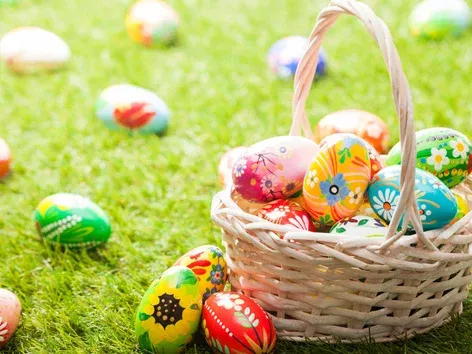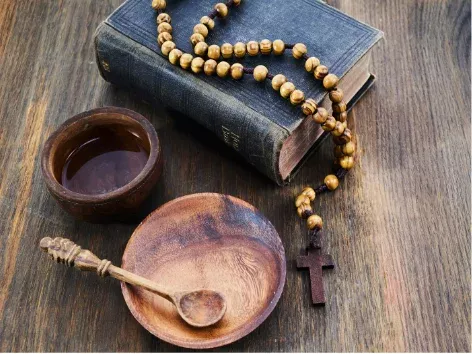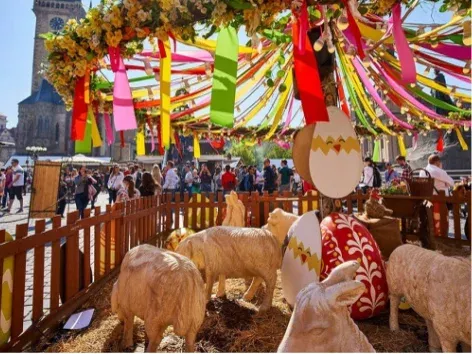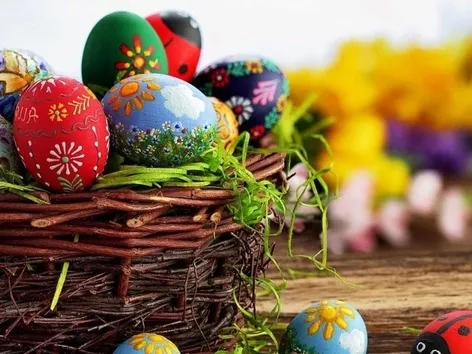An indispensable symbol of Easter: what is the uniqueness of Ukrainian pysanky

Ukrainian pysanky is one of the main symbols of Orthodox Easter. As you know, on the day of the holiday people organise egg beating competitions, but pysanky is intended for something completely different. It is a work of art that is unique in different regions of the country and is considered a kind of symbol for believers. Learn the history of this tradition and other interesting facts
Pysanky are not just brightly coloured Easter eggs, they are a unique symbol of Ukrainian culture, history and spirituality. Each pysanky is a work of art that carries deep meaning and millennia-old traditions. In this article, we will dive into the world of Ukrainian pysanky, explore their history, meaning, regional peculiarities and many other amazing facts.
The history of pysanky goes back to the pre-Christian era, when the egg symbolize rebirth and new life. Later, with the advent of Christianity on Ukrainian lands, pysanka acquired new symbolic meanings associated with the Resurrection of Christ and the Easter holiday. Over the centuries, the tradition of making pysanky has been passed from generation to generation, enriching and transforming.
Ukrainian pysanky are not only beautiful objects. Each element, each pattern on a pysanky has its own meaning. Geometric figures, plant and animal motifs, crosses - all these are symbols of health, fertility, love, prosperity and protection from evil. The process of creating pysanky also has a deep spiritual meaning, symbolising meditation, prayer and immersion in oneself.
What kind of pysanky are there in Ukrainian culture
Ukraine is a country with rich traditions and cultural differences, which is reflected in the art of pysanky.
For example, in Western Ukraine, pysanky with geometric patterns and strict symmetrical shapes prevail. In Central Ukraine one can more often meet plant and floral motifs. Southern regions give preference to brighter and more saturated colours, while eastern regions prefer simpler and more symbolic patterns.
Among the numerous regional variations and techniques, a special place is occupied by:
• "Krapanka" pysanky, where patterns are applied to the egg using wax and paint in a dot-by-dot manner.
• "Dryapanki" - a technique where the paint is scraped off the painted egg, exposing the white shell and creating a pattern.
• "Malevanki", when the egg is completely covered with a pattern using a brush.
• "Krashanky" - eggs dyed in different colours with dyes.
The Easter holiday in Ukraine is unthinkable without pysanky. They are not only a decoration of the festive table, but also a symbol of rebirth, love and hope. By the way, if you did not know, a pysanky given with love can bring happiness, health and prosperity to the house.
Visit Ukraine on social media: Telegram | YouTube | Instagram | Facebook | Twitter | TikTok
Differences of pysanky by regions
In the Kapatsky region, namely in Boykivshchyna, Lemkivshchyna, Hutsulshchyna, Pokutya, Kosivshchyna, one- and two-tone pysanky were preferred: red, yellow, orange, green, blue and white. But black colour is rare here. The Easter eggs are usually decorated with suns, stars, crosses and roses, better known here as roses.
At the same time in Bukovina geometric ornaments and mostly large designs are popular. Among the ornaments popular here are stripes and rosettes depicted on a dark red or black background.
The inhabitants of Prykarpattya love yellow, orange, red and black colours. There are many colourful elements on local pysanky. In particular, there are images of churches and crosses, swastikas and crucifixes with a schematically depicted person.
Pysanky of Podillya are rather restrained. Usually they are made black, which symbolises fertile land. Other dark colours like purple or brown are also used. The pattern itself is painted in black, red and white. Yellow and green are used less frequently. Among the patterns here you can find those that decorate rushniki, embroidery and pottery.
In the north of Ukraine they like geometric ornaments of green, red and yellow colours. The pysanky of Polesie most often depicts geometric ornaments, symmetrically distributing them on separate fields. Often roses are drawn on the eggs.
In the eastern and north-eastern regions of Ukraine masters combine geometric and vegetal ornaments, using saturated colours.
Meaning of pysanky for Ukrainians
The Easter holiday in Ukraine is unthinkable without pysanky. They are not only a decoration of the festive table, but also a symbol of rebirth, love and hope. Gifted with love, pysanky can bring happiness, health and prosperity to the house.
Remember that pysanka in Ukraine is much more than just an Easter egg. It is a cultural heritage, a bearer of unique traditions and a symbol of the rich spiritual life of the Ukrainian people. By preserving and passing from generation to generation the ability to create these unique works of art, Ukrainians preserve their identity and cultural roots.
We remind you! In Ukraine, Orthodox and Catholics in 2024 celebrate Easter on completely different dates, despite the country's transition to a new church calendar. What affects the calculations of the day of the Resurrection of Christ and why the two denominations still have different dates, we tell you here.
Want to know more? Read the latest news and useful materials about Ukraine and the world in the News section.
Our recommendation for a safe and comfortable trip:
Visit Ukraine Insurance - insurance for a safe stay abroad without unnecessary expenses;
Green Card - compulsory car insurance for traveling abroad;
Visit Ukraine Tickets - book tickets for buses, trains, and airplanes to/from Ukraine and between cities around the world;
Private Lawyer service - professional legal support on visa and migration issues;
Visit Ukraine Merch - buy patriotic clothing and accessories with worldwide delivery.
© 2018-2024, Visit Ukraine. Use, copying or reprinting of materials on this site is permitted only with a link (hyperlink for online publications) to Visit Ukraine.
All rights reserved.
Recommended articles
2 min
Veranstaltungen
Lent 2024 has begun: how long it will last, what not to eat and other prohibitions
Easter is one of the most important holidays for all believing Christians. But no less important is the period before the holiday, which prepares people for the Resurrection of Christ. Find out why Lent is necessary and what rules should be observed
18 Mär. 2024
More details1 min
Veranstaltungen
Easter 2024: why you should celebrate the holiday in Prague and what it can surprise you with
Easter is one of the most important Christian holidays celebrated in many countries around the world. However, not all countries celebrate it as brightly and uniquely as the Czech Republic. Find out how Easter is celebrated in this country and what interesting events take place there
24 Mär. 2024
More details2 min
Veranstaltungen
Easter is the biggest holiday in the church calendar of Western and Eastern rite Christians. However, Orthodox and Catholics have different traditions of celebration. Find out more about the main differences and why Easter is celebrated on different dates
22 Mär. 2024
More details2 min
Popular
Comfortable and romantic: where to go on your honeymoon and how to plan it correctly
The wedding journey or honeymoon is an important moment for people who have tied themselves in marriage. This period should go exactly as you plan it, as it will remain in your memory for a lifetime. Find out which places to consider travelling to and how to choose the right destination
07 Apr. 2024
More details

